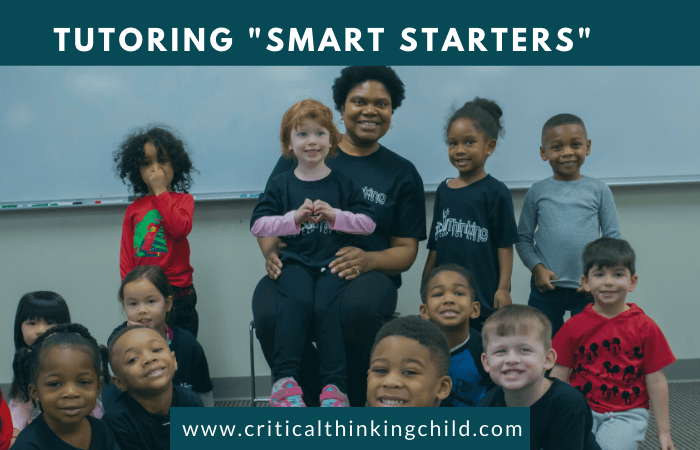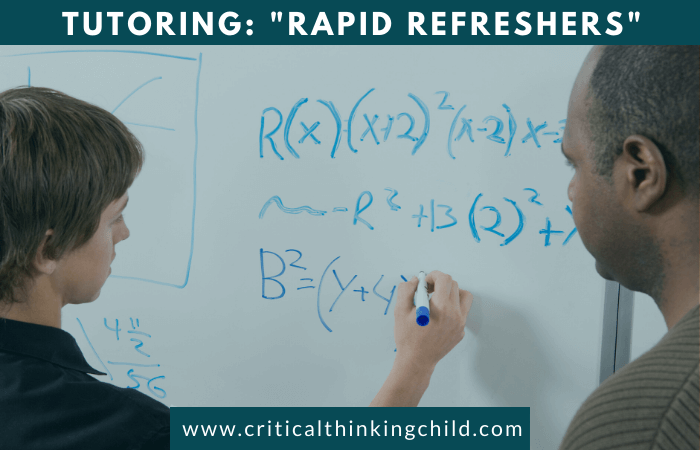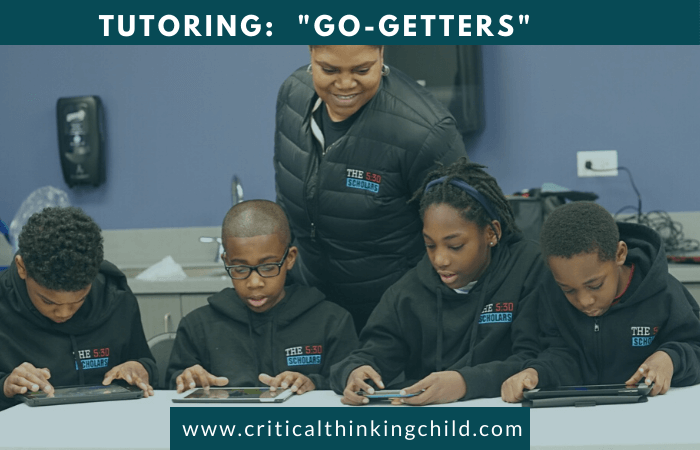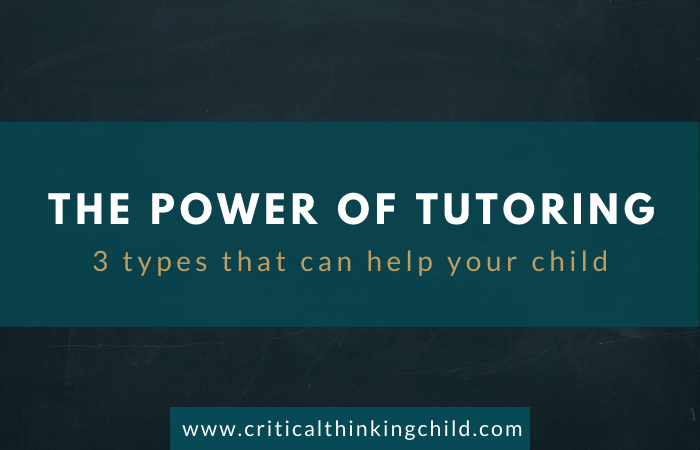Often, the word “tutoring” sets off alarm bells in the mind of a parent. After all, isn’t tutoring reserved for a struggling child who is far behind their peers?
It’s true that tutoring can be incredibly helpful for students who are finding it difficult to grasp concepts within their classroom time. This isn’t a bad thing — it’s a helpful way to provide additional support. But it’s also not the only kind of tutoring out there. In fact, tutoring can help your child no matter how well they’re performing.
In addition to the more traditional idea of tutoring, there are three more types to consider: the Smart Starter, the Rapid Refresher, and the Go-Getter.
 Tutoring Type #1: The Smart Starter
Tutoring Type #1: The Smart Starter
Smart Starters are on top of it! Parents who know that early learning makes a huge difference seek out early interventions and use tutoring to help their child stay ahead of the game. Often, they seek out a tutor who understands the needs of young children and use that time to supplement their child’s preschool program.
Younger children have a natural curiosity, so this form of tutoring exposes children to as many experiences as possible, then focuses on what the child wants to learn. This may involve field trips to museums around town, or can be as simple as spending a day in the garden and allowing the child to take the lead.
Tutoring at an early age is a great opportunity to give your child extra one-on-one time, allow them to experiment with the basics, and let their imaginations soar!

Tutoring Type #2: The Rapid Refresher
The students who benefit most from a Rapid Refresher style of tutoring are on par with grade level expectations, or even ahead, but often need more practice than the average student. These learners grasp the basics quickly, but to completely master a concept they need repeated practice outside of the regular school day. This type of tutoring looks more like traditional tutoring than the Smart Starter method and tends to focus on a boosting a particular skill or concept.
The key to this type of tutoring is consistency, so it’s important to find a tutor who can meet with your child on a regular basis. The sessions don’t need to be long, but should be focused. For example, an hour-long weekly session focused specifically on strategies for multiplication or mastery of letter sounds. The instructional strategies will vary depending on the child, the age, and the subject matter, but between the help of tutoring and your own work at home, you can make sure your child stays right where they need to be academically!

Tutoring Type #3: The Go-Getter
These students need a challenge. You may be able to tell they’re a good fit for the Go-Getter style of tutoring because they say they’re bored, act up at school, or slack off on work. If you catch this early, it’s an easy fix, but if you let the boredom continue it can cause your child to disengage from school.
Go-Getter tutoring designed to help these children can be really fun and engaging! Instead of focusing on a specific skill or concept, tutoring is more open-ended and project-based. When you look for a tutor, seek out one comfortable with relinquishing control and letting the child lead. This could look like reading more advanced books and discussing them, or posing a real-world problem and allowing your child work to solve it through multiple disciplines and skills.
Where to look for a spectacular tutor
When it comes to tutoring, the best way to find a tutor is through word of mouth. Ask around to parents in your neighborhood, or check with your child’s school for recommendations. You can also enroll your students in academic boot camps, like those offered through The Critical Thinking Child, to jump-start their tutoring experience.
Tutoring is a great opportunity to provide your child with targeted, individualized instruction that meets them exactly at their level. In addition to building academic skills, tutoring can help your child build confidence and increase motivation both at school and at home. Don’t underestimate the power of tutoring at any stage of learning — it can be a huge help for your child!



